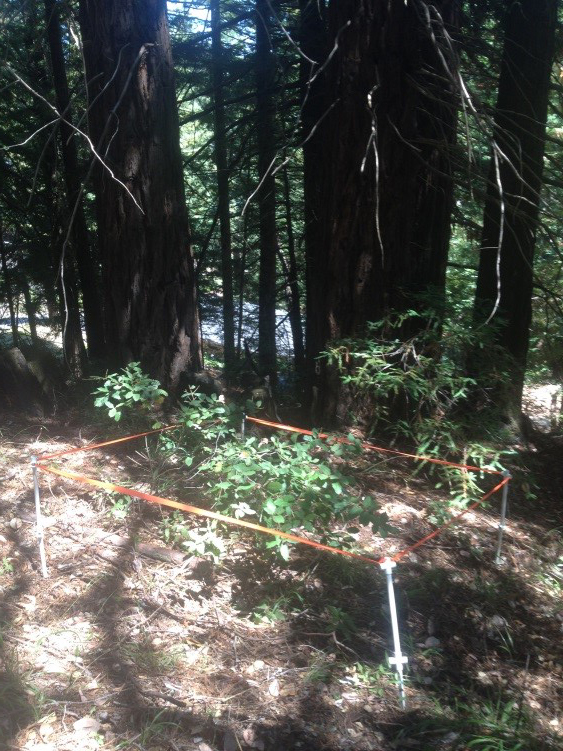Virginia Matzek studies the effectiveness of non-herbicidal methods for controlling invasive grass

Virginia Matzek spent some of her summer setting up a new experiment aimed at eradicating an invasive grass, slender false brome (Brachypodium sylvaticum). Students who took Virginia's Restoration Ecology class last year will remember a field trip to the Thornewood Preserve where this species was seen infesting steep hillsides under the redwood forest canopy. Now, Virginia has teamed up with Mid-Peninsula Regional Open Space District to figure out non-herbicidal methods of control for the grass. The District uses herbicides effectively in some parts of the species's range, but they're not appropriate everywhere. Virginia will test the efficacy of non-herbicidal methods generally against herbicide use, and also determine the most cost-effective of the treatments, which include various mulches and mowing. The experiment is expected to last 3 years and during this time, Virginia will monitor the soil seedbank as well as the abundance of slender false brome.